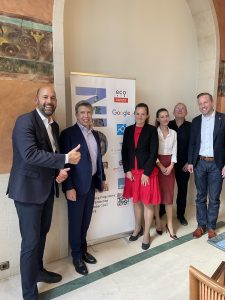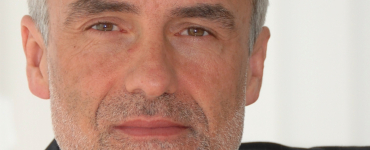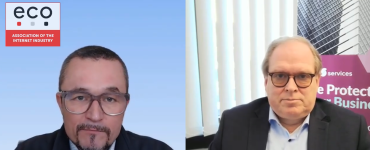On 15 May, the Internet Corporation for Assigned Names and Numbers (ICANN) and the eco Association, invited participants to two events in Berlin: An exclusive “Roundtable Luncheon for Business” at the Adlon hotel was followed by a reception plus panel discussion on regulation issues in the evening.
On 15 May, ICANN, in cooperation with eco, invited the industry and politicians to a dialogue event in Berlin to discuss current topics concerning the Domain Name System (DNS). A stable and secure operation of the DNS – and thus a functioning Internet – is in everyone’s interest. ICANN coordinates the allocation of unique names and addresses on the Internet to ensure its stability and secure operation.
At midday, the Adlon hotel in Berlin provided the exclusive setting for a “Roundtable Luncheon for Business”. Christopher Mondini, among others, took part in this informal exchange with the industry on behalf of ICANN. He is Vice President, Stakeholder Engagement & Managing Director Europe at ICANN. Elena Plexida, Vice President, Government and IGO Engagement, was also in attendance. The eco Association was represented by Managing Director Alexander Rabe, Lars Steffen, Director International and Thomas Rickert, Managing Director, Rickert.law and Director Names & Numbers.
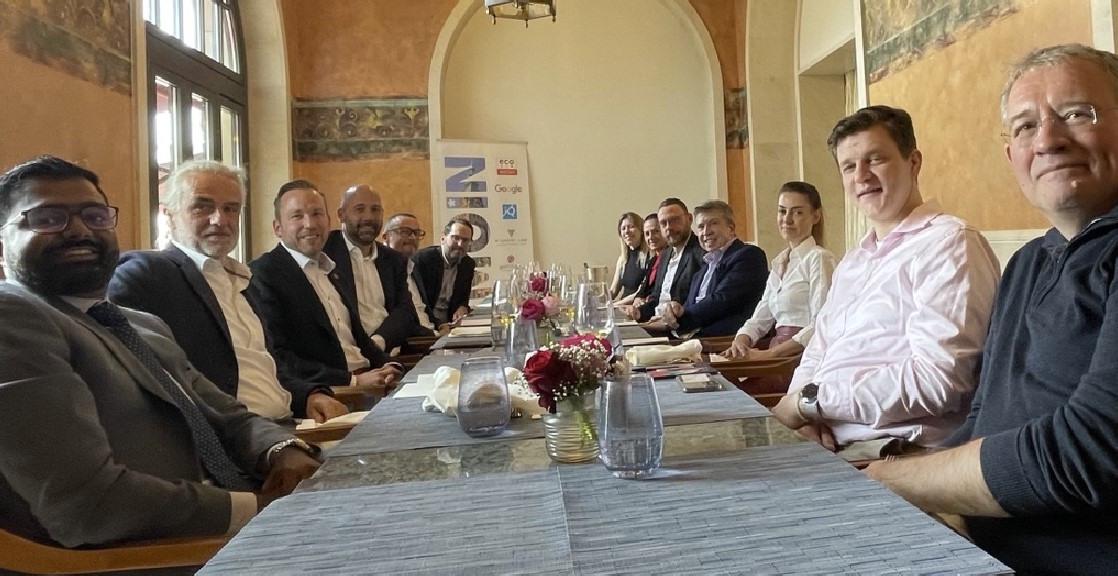
Numerous eco member companies availed of the opportunity for dialogue, including Huawei, IONOS, Google and Meta. There were also representatives from partners such as the German Informatics Society, geoTLD.group, and the Internet & Jurisdiction Policy Network.
Participants discussed current decision-making processes on Internet governance at ICANN. The practised multi-stakeholder model, which in principle offers everyone the opportunity to participate in decision-making, is at odds with national and regional regulation. Digital sovereignty is misunderstood when the DNS is interfered with. The stability of the Internet should not be endangered by geopolitical conflicts and attacks on the Internet infrastructure. The experts also discussed the implementation of existing and the establishment of new standards in the DNS.
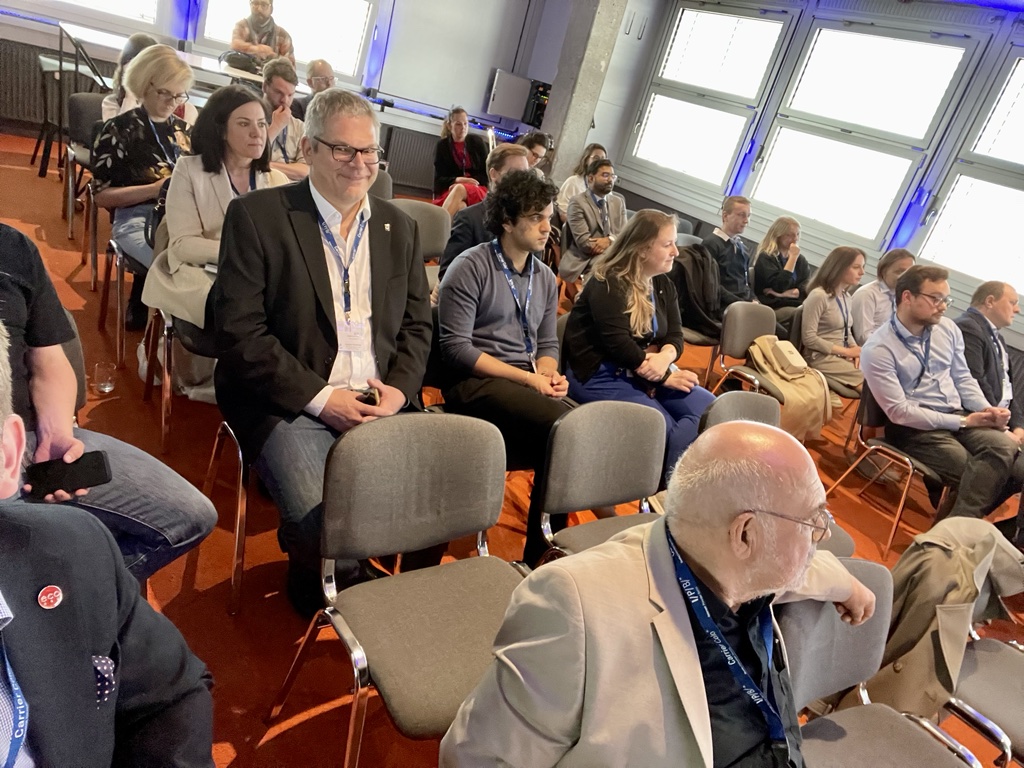
Discussion of the influences on the stable and secure operation of the DNS
In the evening, ICANN, I/P/B Internet Provider Berlin and eco hosted a panel discussion on “Germany’s Approach to the Internet and Digital Strategy” followed by a reception. Among others, Ann Cathrin Riedel, Chair of the association for liberal Internet politics LOAD e.V. and member of the advisory board for the implementation of Germany’s digital strategy, sat on the podium. ICANN was represented by Elena Plexida, Vice President for Government and IGO Engagement. Thomas Rickert, Director Names & Numbers, took part in the discussion on behalf of the eco Association. Lukasz Krol from Internews moderated the panel.
The speakers talked about the challenge of managing a global resource such as the Domain Name System on the basis of a multi-stakeholder model. In particular, nation-state regulations and strategies formed an area of tension in this regard. The development of an international digital strategy by the German federal government, which is currently in progress, was just one example of how the Internet, its infrastructure and its management are increasingly becoming the focus of national interests.
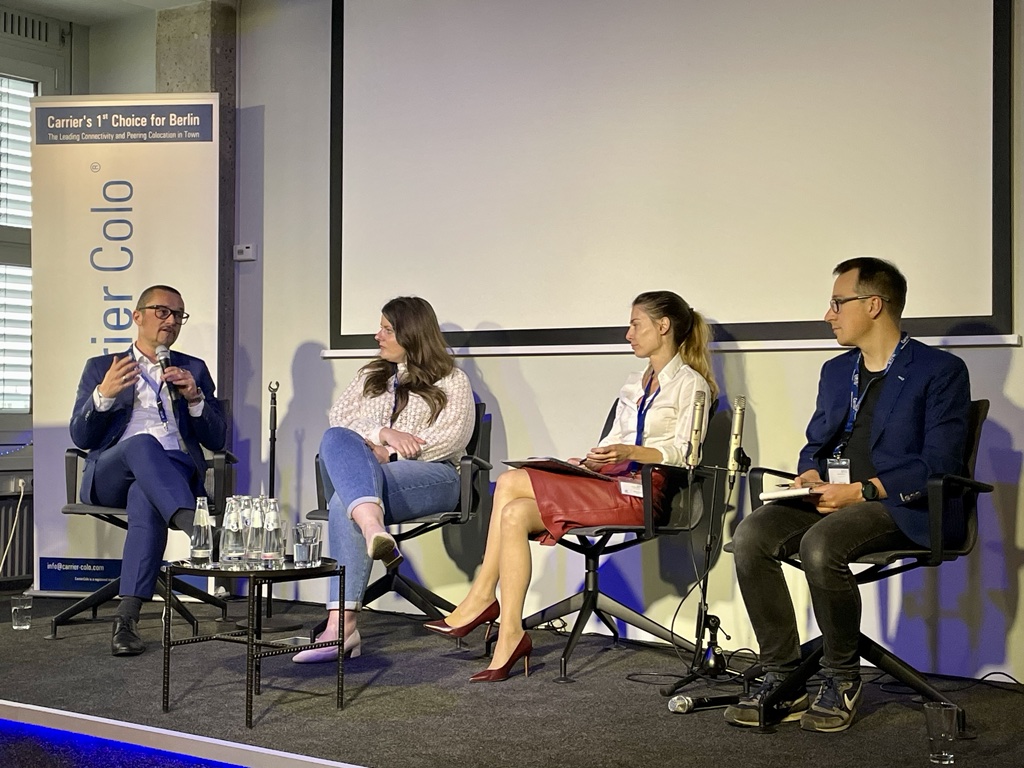
Multi-stakeholder model in the field of conflict between national regulation interests
While the German federal government has set itself the goal of becoming more involved in the multi-stakeholder processes of Internet governance in order to actively shape them, there are increasing tendencies to regulate the Internet and also the DNS at national or regional level. This development poses the risk of endangering or even fragmenting the stability and security of the global system. The training of policy makers was identified as a key element. The good intentions are quite clear in many national/regional legislative initiatives, but the impact on the global Internet does not always seem to be recognised. The aim here is to minimise unintended risks to the secure and stable operation of the Internet and, thus, also of the DNS.
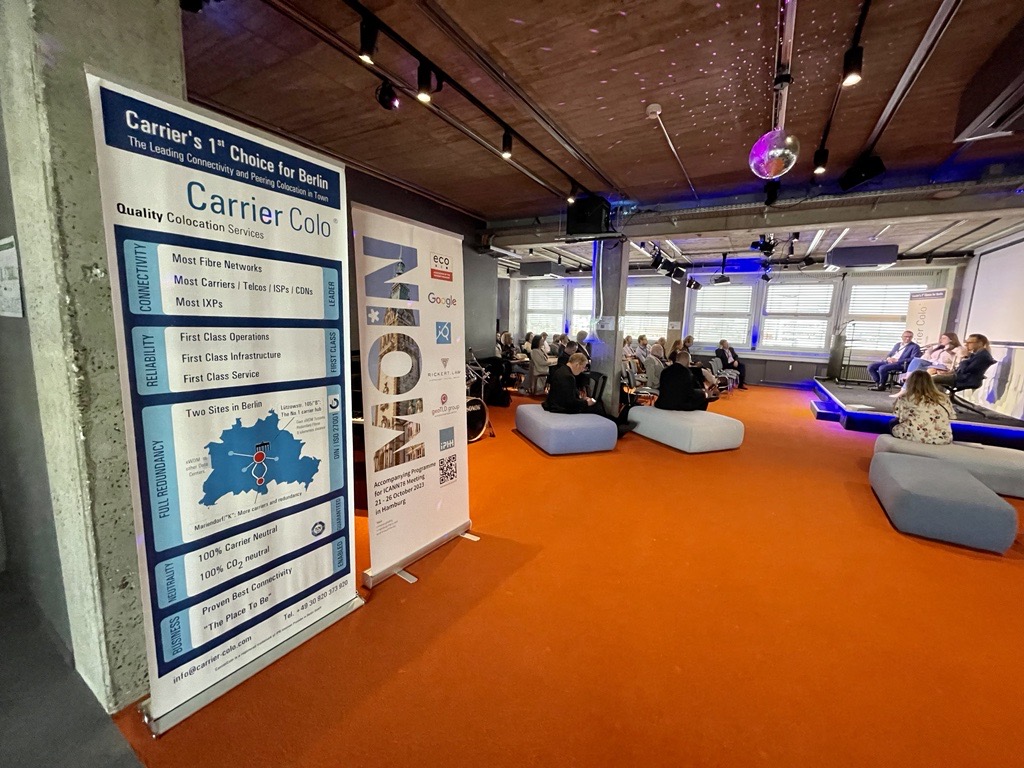
Finally, the Internet, and with it the community of operators, faces increasing challenges: Attacks on infrastructure, abusive activities, shutdowns in authoritarian states, calls for infrastructure intervention in the context of geopolitical conflicts, fragmentation and much more. These global challenges can only be met globally. This is why protecting and strengthening the multi-stakeholder model is so essential. This needs to be strengthened by involving and engaging many in these processes.
How this works in practice can be experienced first-hand in Germany at the end of October. The City of Hamburg, DENIC eG and the eco Association invite the international ICANN community to the 78th ICANN Conference. ICANN meeting will be held in Hamburg from 21 to 26 October.
The ICANN77 Policy Outlook Report is now available here.
